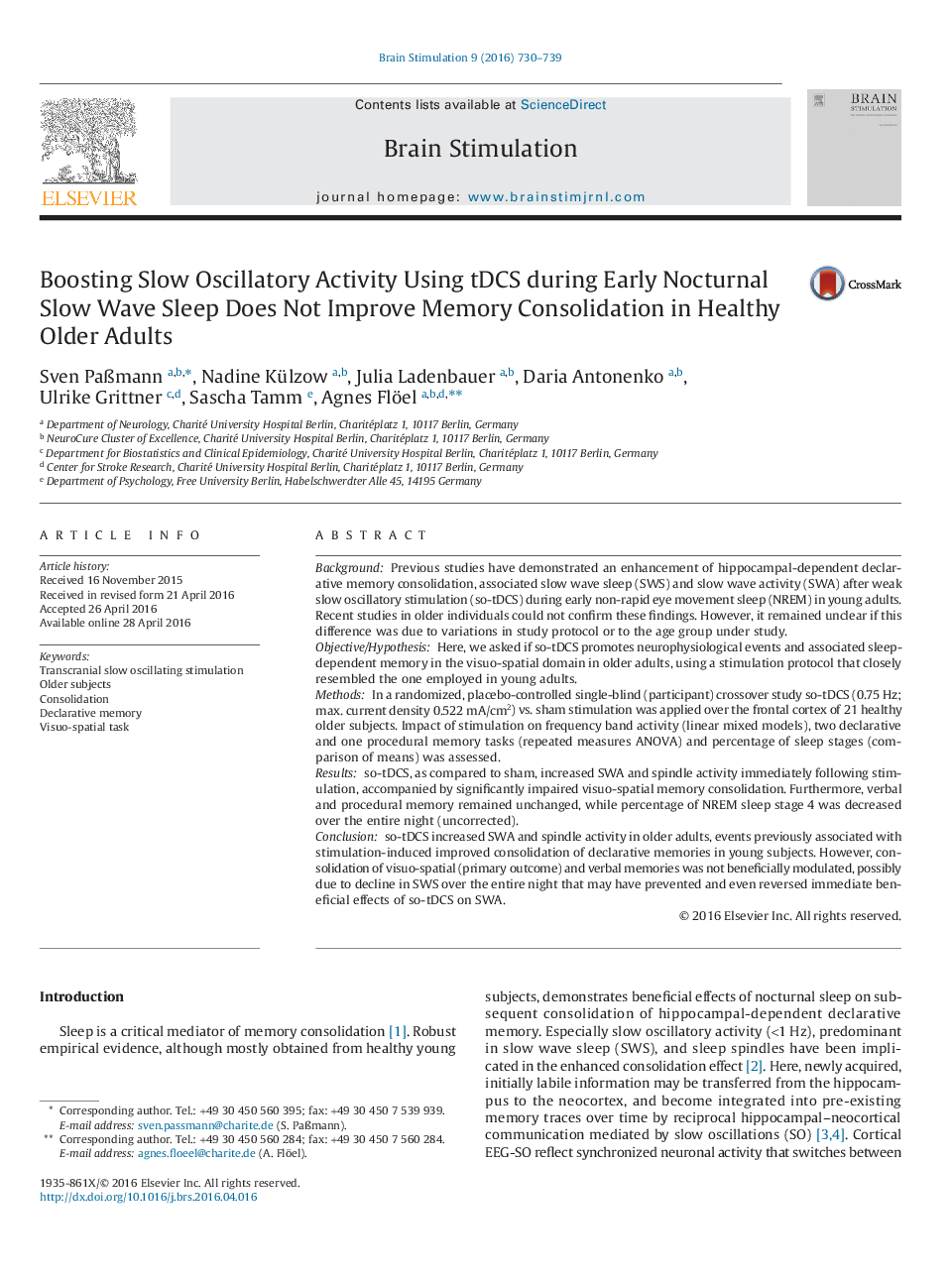| کد مقاله | کد نشریه | سال انتشار | مقاله انگلیسی | نسخه تمام متن |
|---|---|---|---|---|
| 3038698 | 1406330 | 2016 | 10 صفحه PDF | دانلود رایگان |
• Night-time so-tDCS enhanced slow wave and spindle activity following stimulation.
• But so-tDCS decreased sleep stage 4 in older healthy subjects.
• So-tDCS did not result in an improvement of declarative memory.
• Future studies should focus on age-adjusted stimulation protocols.
BackgroundPrevious studies have demonstrated an enhancement of hippocampal-dependent declarative memory consolidation, associated slow wave sleep (SWS) and slow wave activity (SWA) after weak slow oscillatory stimulation (so-tDCS) during early non-rapid eye movement sleep (NREM) in young adults. Recent studies in older individuals could not confirm these findings. However, it remained unclear if this difference was due to variations in study protocol or to the age group under study.Objective/HypothesisHere, we asked if so-tDCS promotes neurophysiological events and associated sleep-dependent memory in the visuo-spatial domain in older adults, using a stimulation protocol that closely resembled the one employed in young adults.MethodsIn a randomized, placebo-controlled single-blind (participant) crossover study so-tDCS (0.75 Hz; max. current density 0.522 mA/cm2) vs. sham stimulation was applied over the frontal cortex of 21 healthy older subjects. Impact of stimulation on frequency band activity (linear mixed models), two declarative and one procedural memory tasks (repeated measures ANOVA) and percentage of sleep stages (comparison of means) was assessed.Resultsso-tDCS, as compared to sham, increased SWA and spindle activity immediately following stimulation, accompanied by significantly impaired visuo-spatial memory consolidation. Furthermore, verbal and procedural memory remained unchanged, while percentage of NREM sleep stage 4 was decreased over the entire night (uncorrected).Conclusionso-tDCS increased SWA and spindle activity in older adults, events previously associated with stimulation-induced improved consolidation of declarative memories in young subjects. However, consolidation of visuo-spatial (primary outcome) and verbal memories was not beneficially modulated, possibly due to decline in SWS over the entire night that may have prevented and even reversed immediate beneficial effects of so-tDCS on SWA.
Journal: Brain Stimulation - Volume 9, Issue 5, September–October 2016, Pages 730–739
